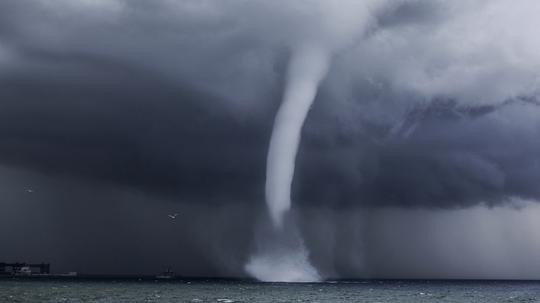
If you were looking up at about 7:30 Monday morning in D.C. you might have noticed small white flakes tumbling out of the sky for about half a minute before they instantly melted upon hitting the ground. This winter hasn't offered up much in the way of a snowy wonderland, with a 70 degree Fahrenheit holiday season leaving plenty of people confused and sweating in their winter jackets.
But why is D.C. getting such weird weather and what does it mean for the rest of the year? The eerily warm winter is what happens when the hottest year on record meets the semi-regular El Nińo climate pattern, which occurs once or twice a decade and releases enormous amounts of heat into the air over the Pacific Ocean, which then travels around the globe. And this has been one of the strongest El Nińos ever recorded, carrying warmer, wetter air to places it might normally never get to.
2015 was not just the hottest year on record, but it beat the previous holder, 2014 by a significant amount. The difference being a function of the long-term heating that human activity has accelerated, boosted by El Nińo. That makes heavy rainstorms and intense heatwaves more likely in many places, and there were certainly plenty of big storms this winter in D.C. to go with the unseasonably warm temperatures.
Climate is not the same thing as weather, but climate studies provide a guide for what kind of weather to look for. That's why governments and corporations are pouring resources into making better and better weather satellites. Locally, PlanetiQ has plans to make predicting storms more precise with low-cost satellites. Its Pyxis weather sensor system, a new kind of weather prediction suite that uses GPS signals to collect 8 million data points a day, will improve weather monitoring and forecasting for a much lower cost than the current system. Pyxis will go into the 12 satellites the company plans to launch in the next few years, the first commercial network of weather satellites in orbit.
That just helps predict and track weather of course, not actually stop it from happening. But collecting more data (and doing so cheaply), would be a big aid to creating plans to combat climate change and save us from the even more enormous storms, hurricanes and other problems it could cause.




